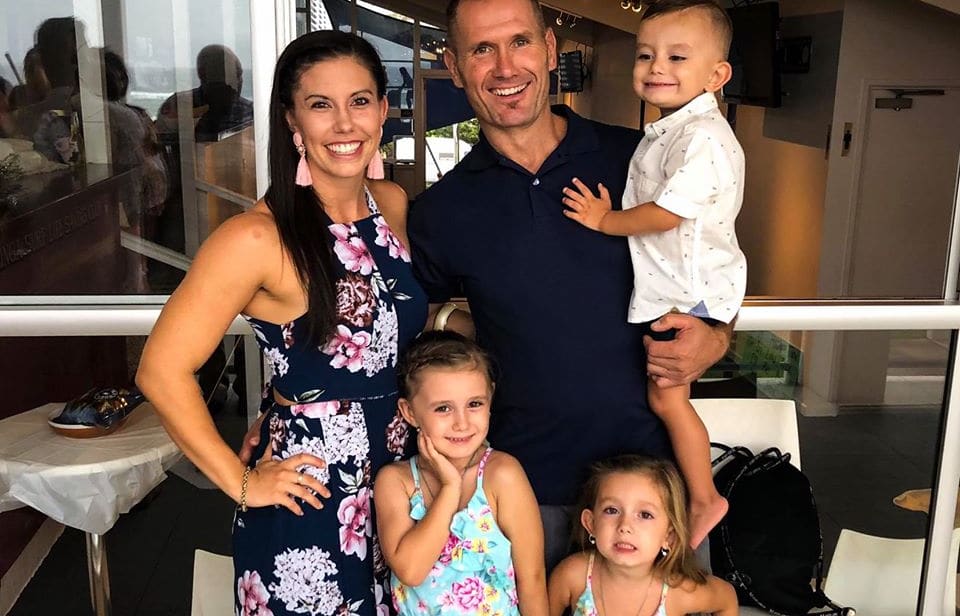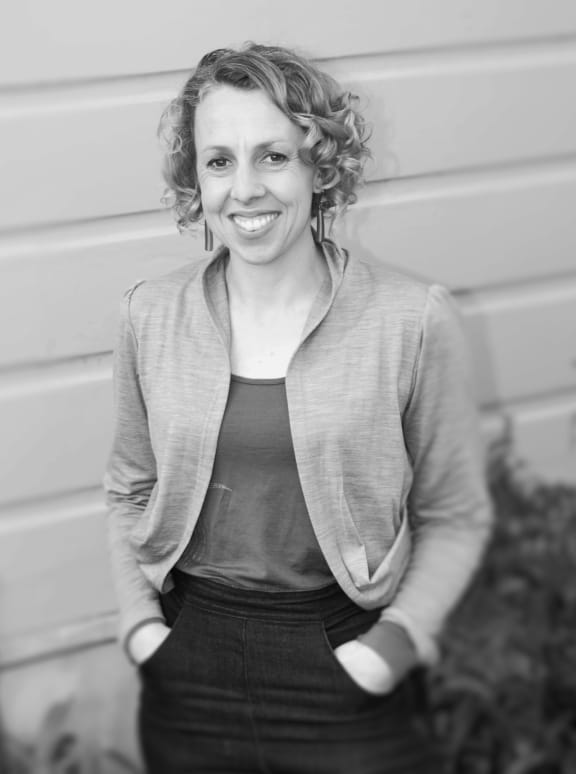By Dr Jess Berentson-Shaw*.
Analysis - Yet again a woman, and her three children, with their whole beautiful complex lives ahead of them, have been killed.
Killed by a man who had to control them. Control them so completely that he stopped them existing.
The injustice of this abhorrent act makes me rage and despair. I am not alone in this. And in this shared despair, in our communities, families, in the media, we talk about the terrible violence.
We talk to show our grief, describe our shock, try to explain and to understand. We also talk to try to prevent the controlling behaviours, anger and violence that too many men in our communities are locked into.

Rowan Baxter doused his wife Hannah Clarke and their children in petrol and set them on fire, killing them. Photo: Facebook
Yet the way we talk about men's violence may be the very thing stopping us getting to the solutions. The narratives that accompany these incidents stop people deepening their understanding.
The most hurtful of these is the "good bloke who snapped" story. It is damaging for those who have lived in fear, often for years.
Tip-toeing around people who have controlled and abused, and minimised their behaviour. Making those who have suffered doubt their experience through such stories is cruel.
And it doesn't surface a better understanding in the public. It fails to explain to people the history of controlling and abusive behaviour.
Behaviour that starts small and builds. Behaviours that people in our systems and communities see but have not acted on. Naming this history. Naming the lack of action taken by those there to ensure women can live their lives freely, matters.
Yet the counterpoint to the good bloke narrative is also problematic. That is the "bad man" or "monster" narrative. In our anger, our confusion, that someone could do something so awful, we need to call them abhorrent.
It feels like justice for the women and children who have suffered. It also helps us see such violence as one individual's terrible choice that we would never make. Yet it is a narrative that can shut down the conversation about prevention.
People are good at understanding the world in concrete terms. What we can see and hear around us. In the case of violence by men we see a terrible man's choice to enact violence and stop there.
What we have difficulty seeing are abstract things. Systems, practices, unwritten expectations in the places we live, work, play and learn. The systems and practices that enable controlling, aggressive and angry behaviours by men.
The terrible individual narrative reinforces people's thinking that it's all about individuals. That we can do little as a society. That the only solution is identify the monsters early and ensure harsh punishment.
Using this narrative we will struggle to lift people's gaze. It also leads to the "not all olympics". Reinforce the idea that men's violence is one monster's choice, and other men find it hard to locate themselves in the story.

Jess Berentson Shaw. Photo: supplied
We need more research on narratives that work. But the first thing to do is avoid those we know to reinforce unhelpful thinking.
Based on the wider area of research, narratives should instead work to reveal the problematic systems in ways non experts can access.
That means identifying narratives that reveal the practices that uphold men's dominance & power over others. Practices and processes that people have put in place. They are in our workplaces, on our sports field, in our legal and educational institutions, and in our communities.
Additionally, point people towards society level solutions. Solutions that show being a man is not synonymous with having control or power, with anger. That being a man is about love, care, vulnerability & support for others.
These solutions are all around us. Men are engaging in them every day. There are amazing examples within indigenous cultures.
Showing masculinity can be different from what we have built in New Zealand. I see men I work with supporting others to rebuild the structures of their organisations.
To no longer reward aggression, power, or traditional metrics of individual achievement. Instead putting in place practices that encourage collaboration, community and care. The college of general practitioners awards professional development points for caregiving. Everywhere people are showing there are many ways to be a man.
We still have a long way to go. Employers, policy makers, judges, police, leaders in media need to make critical changes. To uphold these different models of masculinity throughout their spheres of influence. This is important work for those men who are in a position to do good for others.
Words matter. They can uphold the world we have built, or they can reveal the alternatives we find hard to see.
How we talk about men's violence need to advance the work of building a society in which women can say what good life feels like, knowing men will support them to live that life.
* Dr Jess Berentson-Shaw is a public narrative researcher and Co-Director of The Workshop.



